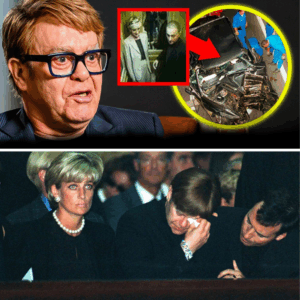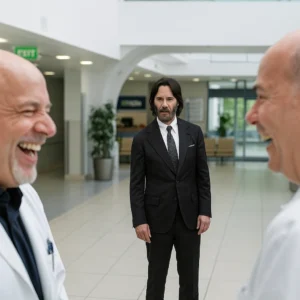Keanu Reeves is a name synonymous with Hollywood stardom, beloved for iconic roles in The Matrix, John Wick, and Speed. His enigmatic charm and action-hero prowess have cemented him as one of Tinseltown’s most enduring figures. Yet, even a star of his caliber isn’t immune to critical drubbings, and the 2013 epic fantasy action film 47 Ronin, where Reeves starred as Kai alongside Hiroyuki Sanada as Oishi, stands as a glaring example. This ambitious Japanese-inspired tale, rooted in the legendary story of the 47 ronin, aimed to blend samurai honor with Hollywood spectacle but instead became a notorious misfire, panned by critics and shunned at the box office. What went wrong with this star-studded, high-budget production, and why did Reeves’ performance draw such ire? Let’s dive into the saga of 47 Ronin, its critical thrashing, and its place in Hollywood’s history of bold but flawed experiments.
The Promise of an Epic: 47 Ronin’s Ambitious Vision
Released on December 25, 2013, 47 Ronin was Universal Pictures’ attempt to bring the revered Japanese tale of the 47 ronin—a group of masterless samurai in 18th-century Japan who avenged their lord’s death—to a global audience. Directed by Carl Rinsch, a first-time feature filmmaker, the movie reimagined the historical Chūshingura story with a fantasy twist, incorporating mythical creatures, shape-shifting witches, and lavish visuals. With a reported budget of $175–225 million, it was a gamble to merge samurai tradition with Hollywood’s blockbuster formula, akin to The Lord of the Rings or Gladiator.
The story follows Kai (Keanu Reeves), a half-Japanese, half-English outcast raised by Lord Asano (Min Tanaka) in feudal Japan. When Asano is tricked into disgrace and forced to commit seppuku by the scheming Lord Kira (Tadanobu Asano) and his sorceress ally Mizuki (Rinko Kikuchi), his samurai become ronin. Led by Oishi (Hiroyuki Sanada), they recruit Kai for a daring mission to restore their honor by killing Kira, defying the Shogun’s orders. The film weaves themes of loyalty, sacrifice, and bushido, punctuated by battles against supernatural foes like the Kirin, a dragon-like beast.
Reeves, fresh off a quieter phase in his career, was cast as the outsider hero to appeal to Western audiences, while Sanada, a respected Japanese actor known for The Last Samurai, brought authenticity as the stoic Oishi. The supporting cast, including Ko Shibasaki as Mika, Asano’s daughter, and Tadanobu Asano as the villainous Kira, boasted talent. On paper, 47 Ronin had all the makings of a cross-cultural hit. So why did it crash so spectacularly?
A Critical Bloodbath: Why the Film Was Panned
Despite its high-profile cast and glossy production, 47 Ronin was savaged by critics, earning a dismal 16% on Rotten Tomatoes (based on 90 reviews) and a 28/100 on Metacritic, signaling “generally unfavorable” reception. The consensus was brutal: the film was a muddled, overstuffed mess that failed to honor its source material or engage audiences. Critics targeted several key flaws, with Reeves’ performance often in the crosshairs.
Keanu Reeves: A Miscast Star?
Reeves, despite his star power, was widely criticized for his role as Kai. The character, a fictional addition to the historical tale, felt like a forced conduit for Western viewers, and Reeves’ subdued, stoic delivery didn’t help. The New York Times called his performance “wooden,” arguing that Kai lacked the emotional depth needed to anchor the story. Variety noted that Reeves seemed “out of place,” his modern, understated style clashing with the film’s ornate, period setting. Fans of the Chūshingura legend were particularly vocal, decrying Kai as an unnecessary “white savior” figure that diluted the samurai narrative.
To be fair, Reeves wasn’t entirely at fault. The script gave Kai little to work with—a brooding loner with a thinly sketched romance with Mika (Shibasaki) and vague mystical powers that felt tacked on. Unlike his dynamic roles in John Wick or The Matrix, where his physicality and charisma shone, Kai required a nuanced cultural performance that Reeves, by his own admission, struggled to deliver. In a 2013 interview with The Hollywood Reporter, he acknowledged the challenge of embodying a character bridging two cultures, saying, “I leaned on the cast to guide me.” Yet, critics argued that his presence overshadowed the Japanese ensemble, particularly Sanada, who delivered a far more compelling performance.
A Clash of Tones and Cultures
Beyond Reeves, the film’s tonal inconsistency drew fire. 47 Ronin tried to be too many things: a historical drama, a fantasy epic, an action blockbuster, and a cross-cultural bridge. The addition of fantastical elements—witches, demons, and a giant monk-like creature—alienated purists who revered the grounded Chūshingura story. The Guardian called it “a garish betrayal of the source material,” arguing that the supernatural flourishes felt like a desperate bid for mass appeal. Meanwhile, casual viewers found the mix of samurai gravitas and CGI spectacle jarring, with pacing that dragged despite the action.
The film’s attempt to blend Hollywood and Japanese aesthetics also backfired. While the visuals—filmed in Budapest, London, and Japan—were stunning, with lush costumes and sets, critics felt the movie lacked cultural authenticity. Japanese audiences, in particular, were lukewarm, with some on X (then Twitter) in 2013 labeling it “Hollywood’s caricature of our history.” The decision to shoot primarily in English, with Japanese dialogue dubbed or reshot, further distanced the film from its roots, despite efforts to film scenes in both languages.
Production Woes and a Rookie Director
Behind the scenes, 47 Ronin was a troubled production, and critics sensed the chaos. Carl Rinsch, a commercials director with no feature experience, was an unconventional choice for a $175 million epic. His vision clashed with Universal’s, leading to extensive reshoots and a delayed release from November 2012 to December 2013. The studio mandated additional scenes to boost Reeves’ screen time, including a love scene with Mika, which critics panned as “forced” and “unconvincing.” Rinsch was reportedly sidelined during post-production, with Universal executives overseeing the final cut—a move that left the film feeling disjointed.
The 3D conversion, added late to capitalize on the trend, was another misstep. Reviewers like Roger Ebert’s site called the 3D “dim and unnecessary,” inflating costs without enhancing the experience. With a ballooning budget and competing against holiday heavyweights like The Hobbit: The Desolation of Smaug, 47 Ronin was set up for failure.
Box Office Disaster and Financial Fallout
47 Ronin didn’t just flop with critics—it tanked commercially. Grossing just $151.8 million worldwide against a $175–225 million budget (excluding marketing), it was one of 2013’s biggest box office bombs, losing Universal an estimated $100–150 million. The Christmas release, meant to capture holiday crowds, backfired amid fierce competition. In Japan, where the story is a cultural touchstone, the film earned a paltry $11 million, reflecting local disinterest. North America wasn’t much better, with $38 million in ticket sales.
The financial disaster stung Universal, already reeling from other 2013 flops like R.I.P.D. It also marked a low point for Reeves, whose career had been in a quieter phase before his John Wick resurgence in 2014. For Rinsch, the fallout was severe; he has not directed a feature film since, retreating to commercials.
Bright Spots Amid the Wreckage
Despite the thrashing, 47 Ronin wasn’t without merit. Hiroyuki Sanada’s performance as Oishi was a standout, earning praise for its gravitas and authenticity. The Los Angeles Times called him “the film’s beating heart,” a samurai whose loyalty and anguish resonated. The supporting Japanese cast—Tadanobu Asano’s sneering Kira, Rinko Kikuchi’s menacing Mizuki, and Min Tanaka’s dignified Asano—also shone, grounding the film’s excesses.
Visually, 47 Ronin was a triumph. Cinematographer John Mathieson (Gladiator) crafted breathtaking scenes, from misty forests to Kira’s fortress. The score, blending Ramin Djawadi’s orchestral work with Ryuichi Sakamoto’s contributions, was hauntingly effective. Action sequences, like the ronin’s battle with the Kirin or the climactic assault on Kira’s stronghold, delivered thrills, even if they couldn’t salvage the narrative. On CinemaScore, audiences gave the film a B+, suggesting some found it entertaining despite critical scorn.
Legacy and Reevaluation
47 Ronin remains a cautionary tale of Hollywood’s struggles with cross-cultural storytelling. Its failure underscored the risks of imposing Western sensibilities on non-Western narratives, a critique echoed in later flops like Ghost in the Shell (2017). Yet, the film has gained a niche following, particularly among Reeves’ fans and lovers of fantasy epics. On X, posts from 2023–2025 show renewed appreciation, with users calling it “underrated” for its visuals and Sanada’s performance. A 2022 Netflix sequel, Blade of the 47 Ronin, set 300 years later, tried to capitalize on the brand but lacked the original’s cast and fizzled quietly.
For Keanu Reeves, 47 Ronin was a rare misstep in a career defined by resilience. Critics may have roasted his performance, but his star power endured, bolstered by John Wick and later acclaim in The Matrix Resurrections. Hiroyuki Sanada, meanwhile, emerged unscathed, cementing his status in films like John Wick: Chapter 4 and the series Shōgun (2024).
Conclusion: A Noble Failure
47 Ronin was a bold swing that missed the mark, a film undone by its own ambition, a rookie director’s inexperience, and a star turn that didn’t land. Keanu Reeves, Hollywood’s everyman hero, couldn’t save this Japanese-inspired epic from critical slaughter or financial ruin. Yet, its stunning visuals, Sanada’s masterful performance, and flickers of samurai spirit keep it from being a total write-off. As a footnote in Reeves’ storied career and a lesson in cultural adaptation, 47 Ronin remains a fascinating, if flawed, artifact of 2013 cinema—a reminder that even the brightest stars can stumble in the wrong role.




